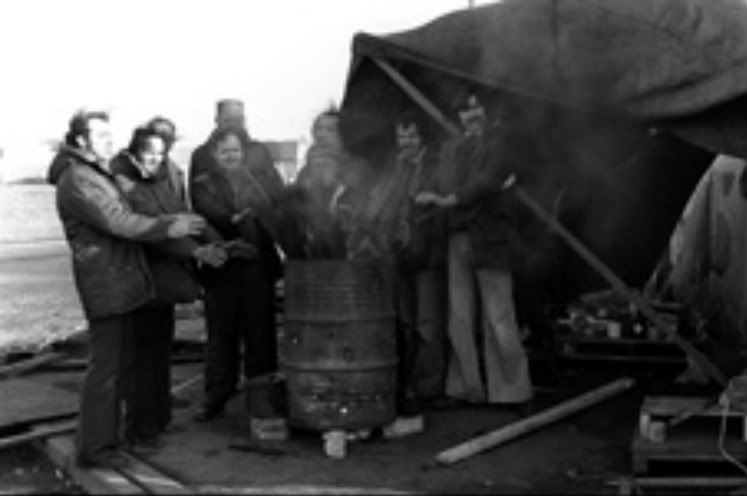The lorry drivers’ strike from my perspective.
At this time W.H. Williams (Haulage) Ltd had 170 employees with only about half TGWU members. None or very few would have been had it not been that Thorn Domestic Appliances, who accounted for 30% of our turnover allowed their Spennymoor plant which employed about 7,000 to become a closed shop, with union members inspecting union cards at the security gate.
Our drivers were on relatively good wages due to our bonus scheme which I have described on W.H.Williams thread. To give an example a driver was paid 9 hours at double time to drive down to Kingston on Thames, where the majority parked in the London area, on a Sunday afternoon. 11 hours to travel to Portsmouth. We had plenty of work that made overtime readily available. Our base rate however was the agreed industry rate per hour plus subsistence, meal allowances, parking fees etc.
Traditionally wages had been fixed by the Road Haulage Wages Council, which was governed by The Truck Act.(An act of parliament governing several wages councils nothing to do with Trucking) This set out wages per hour to be paid and gave legal right that employees were paid in cash and various other rights. The Road Haulage Wages Council had legal powers to attend our premises and inspect our records to ensure we were paying the correct amount, fine employers who were not and make them pay employees any underpayments.
This was before the days of legal minimum wage but in many ways served a similar purpose. Unions and employers and the government thought the Truck act should be repealed and it was. Also you have to take into consideration the state of the country in the late seventies, when Hughie Green went on television and begged for industrial peace, as he saw unrest and strikes were destroying our great country.
It is easy to criticise the TGWU, whose officials lavished themselves at expensive hotels and over seas meetings at their member’s expense, but at least they were, in my opinion a lot more organised than the employers that consisted of so many hauliers who had no experience with the type of industrial relations that was heading their way.
The unions insisted that they would not negotiate on a national basis but chose regional negotiations. The only negotiators were local Road Haulage Association Comities. In the North East the representatives on these comities were made up of small hauliers who in the majority of cases attended their RHA meetings for a chin wag and drink. The North East committee was made up of some who were little more than owner drivers.
My father and I had discussions with Bob Stephenson of the TGWU representative from Newcastle. For the union the red line was £65.00 for a forty hour week, and haulers had only offered £60. Although a true ballot of union workers would never had voted to strike there were several activists that were determined to bare their teeth and in their eyes bring the country to standstill. At the time our wages were not bad, as I have already said and our problem was absenteeism among some. Particularly on a Monday morning after a good Sunday’s drinking
My answer was to agree to the £60 which was the base rate plus £5.00 per week attendance allowance which gave the union £65.00 which they were demanding but kept the overtime and double time payments and holiday pay based on the £1.50 per hour rate. (In those days holiday pay was paid at 50 hours at basic time) We got agreement and the strike started unofficially and we carried on working paying as our new agreement.
However I was watching News at ten when as Big Ben struck it was announced that the Transport Strike was made official. We had four night shift loaders working within Thorn loading our vehicles and they were told to go home as they were on strike in support of the drivers who were on strike.
We were on strike for nine days and I will over the next day or so on the W.H.Williams Thread explain in detail what happened and some details of back door dealings and personalities that put us and others back on the road earlier that the official end of the strike.

